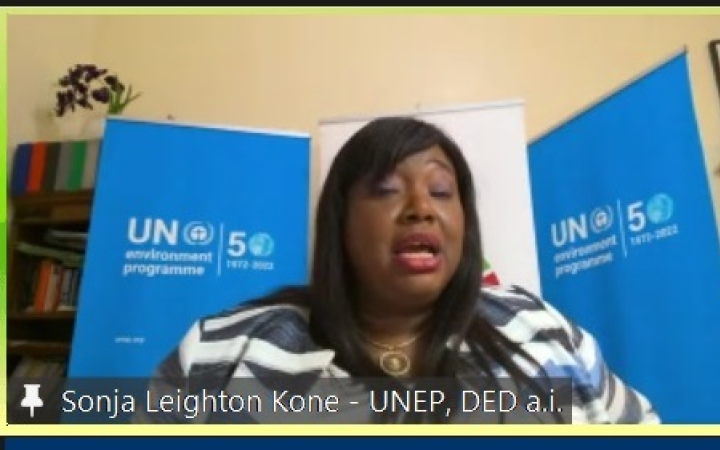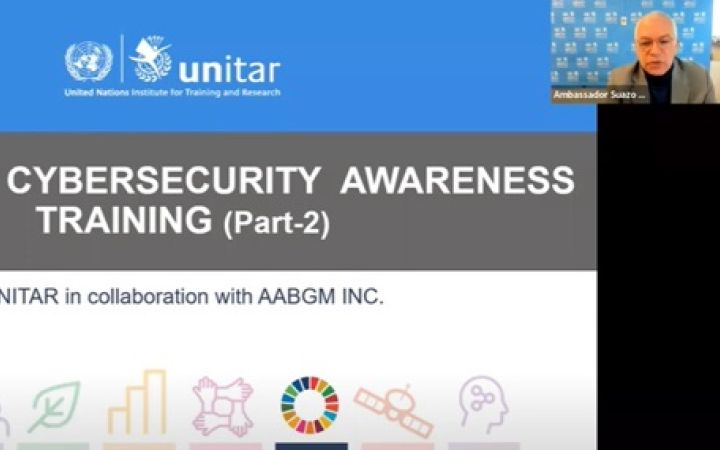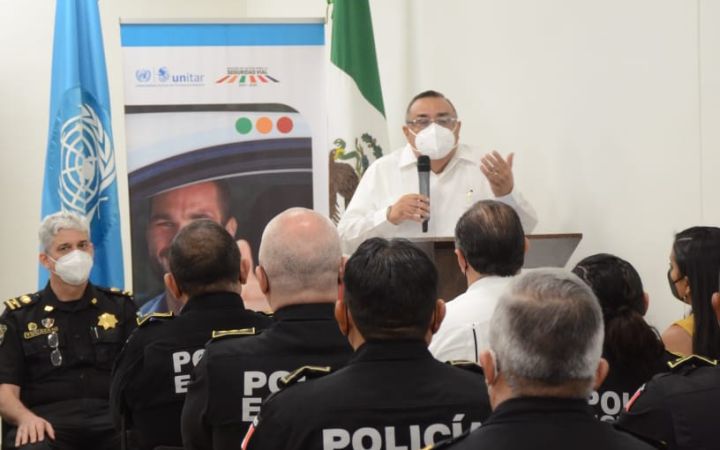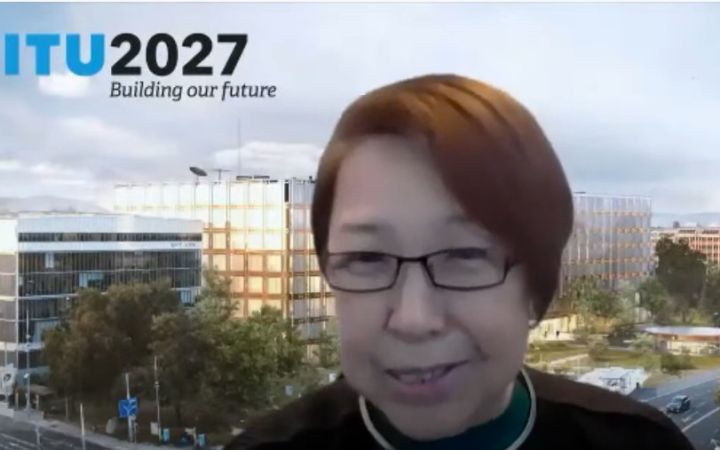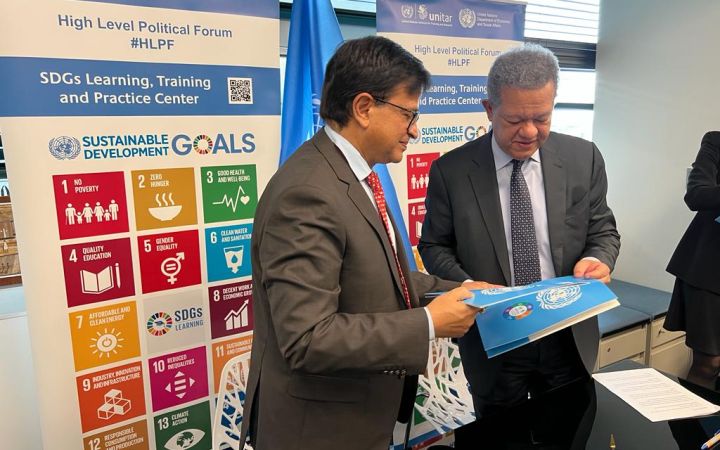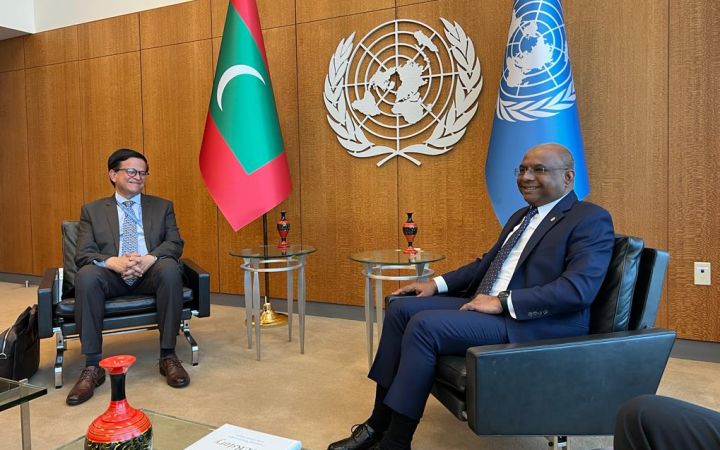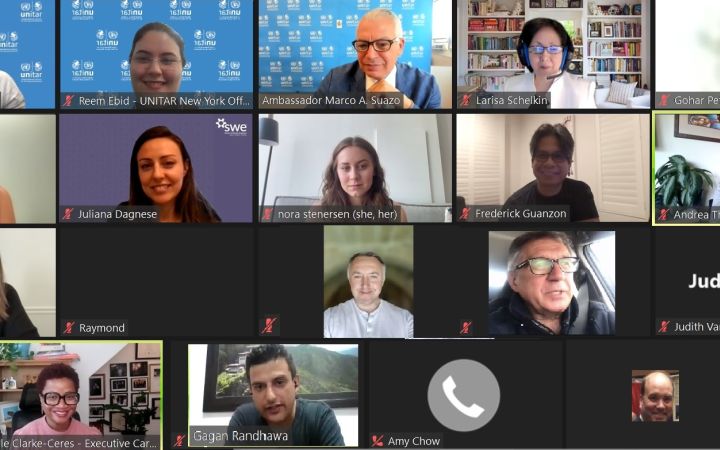Displaying 1001 - 1010 of 3509
10 May 2022, New York, United States (Virtual) – The United Nations Institute for Training and Research (UNITAR) New York office and Yale University third part of annual series, Looking Towards COP 27: Climate Extremes: The Housing Crisis, Food Shortages, and Energy Poverty, took place. The programme provided a unique discussion with experienced professionals on issues the climate is facing and actions to consider; to be able to reach and implement the set goals of the 2030 Agenda.
4 May 2022, New York, United States (Virtual) – The United Nations Institute for Training and Research (UNITAR) New York office, in partnership with AABGM Inc. - a Microsoft and EC Council certified leading company in the Cybersecurity field, kickstarted the event on Cybersecurity Awareness Training (Session 2) - Advanced Cybersecurity.
3 May 2022, Mérida, México – In line with Sustainable Development Goal 3.6: "Halve the number of road traffic injuries and deaths", UNITAR’s Autosobriety Training Programme seeks to contribute to changes in drivers' attitudes and contribute to the reduction of alcohol-related road crashes. The programme is aimed at government authorities responsible for road safety, road users and drivers, universities, the media, private companies, among others.
3 May 2022, Hiroshima, Japan — 65 participants joined the UNITAR online conference “Empower the Youth: Fostering Inclusive Entrepreneurship in Iraq.” In commemoration of UNITAR’s training in Iraq for the past six years, the conference aimed to identify the most pressing problems among Iraqi youth entrepreneurs and consolidate potential solutions to encourage accessibility and growth. The conference was conducted in partnership with GREEN CHARTER Foundation for Water and Environmental Consulting, KAPTA Business Hub, SANAD for Economic Development, and The Station Foundation for Entrepreneurs.
3 May 2022, Hiroshima, Japan – The COVID-19 pandemic has exacerbated socioeconomic disparities around the world. It especially highlighted the widening digital divide within societies and between industrialized and developing economies. With 96 per cent of the 2.9 billion people without Internet access living in developing countries, closing this divide requires more attention than ever before.
25 April 2022, New York, United States – The United Nations Institute for Training and Research (UNITAR) in partnership with Fundación Global Democracia y Desarrollo (FUNGLODE) and Instituto Global de Altos Estudios en Ciencias Sociales (IGLOBAL) came together at the UNITAR New York Office to sign a Memorandum of Understanding (MoU) between these three offices and begin a fruitful collaboration in the field of Multilateral Diplomacy.
25 April 2022, New York, USA .- During his final meetings in the United Nations Headquarters in New York, the UNITAR Executive Director, Mr. Nikhil Seth met the Deputy Secretary-General Ms. Amina Mohammed to talk about UNITAR’s forthcoming plans including the new Board of Trustees members. Mr. Seth pointed to the need for strengthened coherence of UNITAR programming with broader UN efforts, and the need to help tapping other types of funding. The necessity to find an efficient mechanism for small UN entities to contribute to broader UN efforts was discussed. He called to take actions to work more closely with country teams to support implementation of the 2030 Agenda more effectively.
25 April 2022, Geneva, Switzerland – The United Nations Institute for Training and Research (UNITAR) has appointed the President and Managing Director of Special Olympics Europe Eurasia David S. Evangelista to the Advisory Board of its Division for Multilateral Diplomacy. The two-year term takes effect from January 2022 to December 2024.
April 2022 - The volcanic eruption and subsequent tsunami that hit Tonga in early 2022 is a stark reminder of the reality of disasters, and the fact that a disaster, can hit anywhere at any time and render communities vulnerable to massive damages. Mele Moimoi, a disaster risk reduction trainer at Tonga National Council of Churches (TNCC), and an alumna of UNITAR programme in 2021, tells her story.
22 April 2022, New York, United States (Virtual) – The closing ceremony for the Global Diplomacy Initiative Programme (GDI) took place to celebrate the GDI fellows’ graduation at the United Nations Institute Training and Research office in New York. The GDI programme provides a unique training experience for professionals and students in higher stages of education who are interested in the United Nations to understand how it functions while developing technical knowledge and gaining learning experience from experts.


